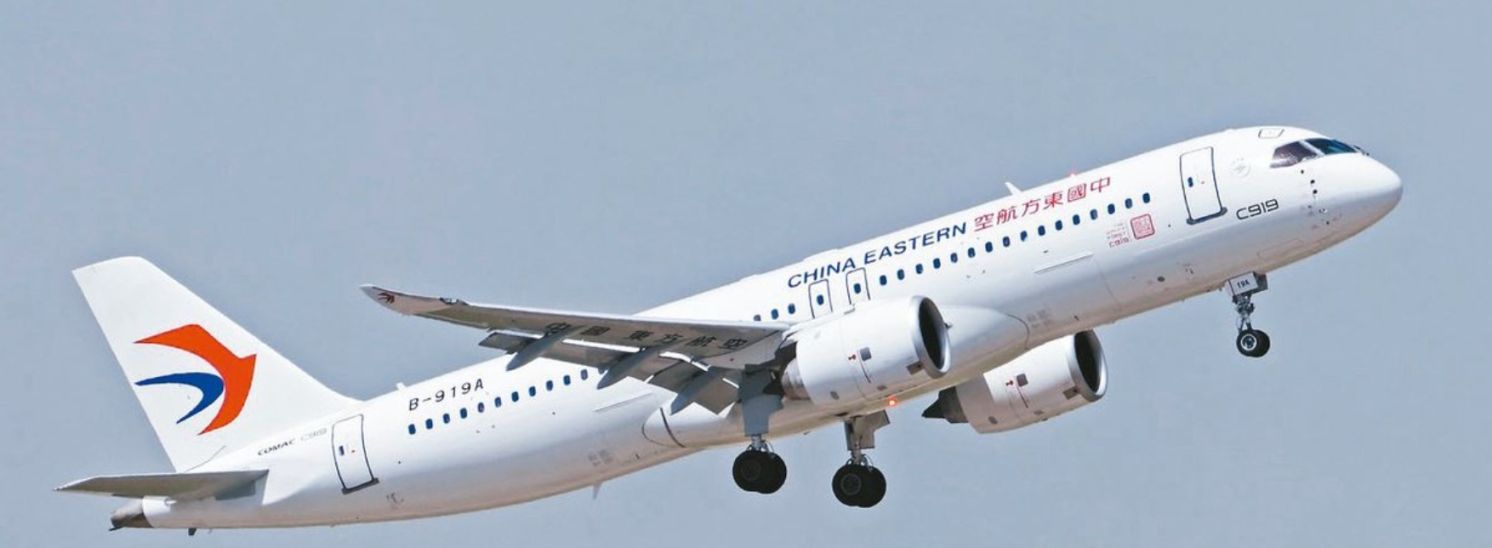
Only Capable of Insults:Government Exposes its Ineptitude Dilemma
United Daily News Editorial, February 3, 2024
Mainland China’s Civil Aviation Administration recently announced the cancellation of the M503 air route's north-to-south offset, opting instead for three connected routes to be flown from west to east. This move is expected to increase pressure on Taiwan in its aviation identification of mainland Chinese military and civil aircraft. In response, the administration of President Tsai Ing-wen issued three consecutive strong statements: the Mainland Affairs Council (MAC) criticized it as an inappropriate attempt to package political and military intentions using civil aviation, urging an immediate halt; the Ministry of Foreign Affairs (MOFA) strongly condemned the move and demanded immediate consultation with Taiwan; and Taiwan’s Civil Aviation Administration (CAA), Ministry of Transportation and Communications, expressed regret and lodged a solemn protest. Despite the verbal attacks, it demonstrates that the Tsai administration has lost the ability to communicate and negotiate with the mainland.
Mainland China’s new measures on the M503 air route have a singular purpose: to retract the goodwill extended to Taiwan. The flight offset of the M503 route was a consensus reached during the peaceful period between the two sides in March 2015 under President Ma Ying-jeou. The mainland agreed that the actual flight offset for this route toward the mainland direction would be "westward by six nautical miles," and it would be a unidirectional flight from north to south, with the three routes, including Xiamen, temporarily not in use. In other words, the westward offset of the air route was the mainland’s respect for the "median line," and discontinuing the west-to-east flight route was an expression of goodwill for peaceful cross-strait relations. Now that the Tsai administration has strained cross-strait relations, Beijing is retracting the goodwill it had extended. As for the aviation identification pressure Taiwan will face, it is not within Beijing's considerations.
In fact, recent developments, such as the cancellation of tariff preferences for Taiwan under the Economic Cooperation Framework Agreement (ECFA), the sudden blockade of agricultural and fishery products shipped to the mainland, and the severance of diplomatic, share similarities. The goodwill and concessions Taiwan received during the period of peaceful co-existence between the two sides have been gradually retracted by the mainland after the deterioration of cross-strait relations. While the Tsai administration can criticize mainland China's moves as having ulterior motives, it should also reflect on why the advantages secured by the previous administration are being squandered. Why does it continuously burden the public with its governance when is it already unable to benefit the people?
A problem with the M503 route saw three government ministries, the MAC, MOFA, and CAA, publicly condemn it. The reason for this is the entire government has lost various channels for communication and dialogue with mainland China, and adopting a confrontational approach at least directs the public's anger towards the mainland, shifting responsibility to the mainland’s unreasonable suppression while forgetting that this is due to the incompetence and neglect of the Tsai administration. The MAC, which is responsible for cross-strait affairs, has been dormant for many years, drawing a high salary while only engaging in protests and verbal abuse. Is it living up to its position? Even more ludicrous is MOFA, which often ventures into unnecessary confrontations with its engagement in anti-China rhetoric, forgetting its repeated failures in the diplomatic arena. Especially, its demand for China to "immediately negotiate with Taiwan" in a commanding tone—what has it achieved?
The Tsai administration deems the change in the M503 route a part of mainland China's political and military pressure, offering a convenient excuse while overlooking the actual transportation needs of mainland Chinese cities. More importantly, it ignores how difficult it was for the Ma administration to achieve this agreement in the first place. The M503 route was approved by the International Civil Aviation Organization (ICAO), and the mainland’s self-imposed restrictions were a sign of goodwill. By canceling these restrictions, the mainland did not violate ICAO regulations, and no matter how dissatisfied the Tsai administration is, it has no recourse.
During President Tsai's eight years in office, she has fully utilized the legacy of cross-strait peace left by the Ma administration, including ECFA, the sale of agricultural and fishery products to the mainland, the offset of air routes, and cross-strait exchanges of tourists and students. However, while enjoying these benefits, the Tsai administration has resorted to insults, squandering these achievements. Now, various assets are on the verge of being depleted, and it has only recently realized that all the channels and tools for communication and negotiation with the mainland have disappeared. So, where does it intend to go next?
After the election, Chiou I-jen, dubbed the "number one strategist of the Democratic Progressive Party," participated in a discussion with American, Chinese, and Japanese scholars at the invitation of The Nikkei. He opined that because the DPP does not recognize the 1992 Consensus, it is challenging to conduct dialogues with the mainland, and the incoming administration of President-Elect William Lai will inevitably have to compromise with the Kuomintang (KMT) in the future. The problem lies in the DPP cannot hold a dialogue with Communist China, and with its confrontational approach to the mainland's measures, the difficult problems between the two sides may never have a chance to be resolved. Under President Tsai's complete governance, this dilemma might still be concealed; however, when Mr. Lai, who will lead a minority government, takes office, if he cannot seek reconciliation and appoint new talents, he will only lead the country into an even more challenging situation.